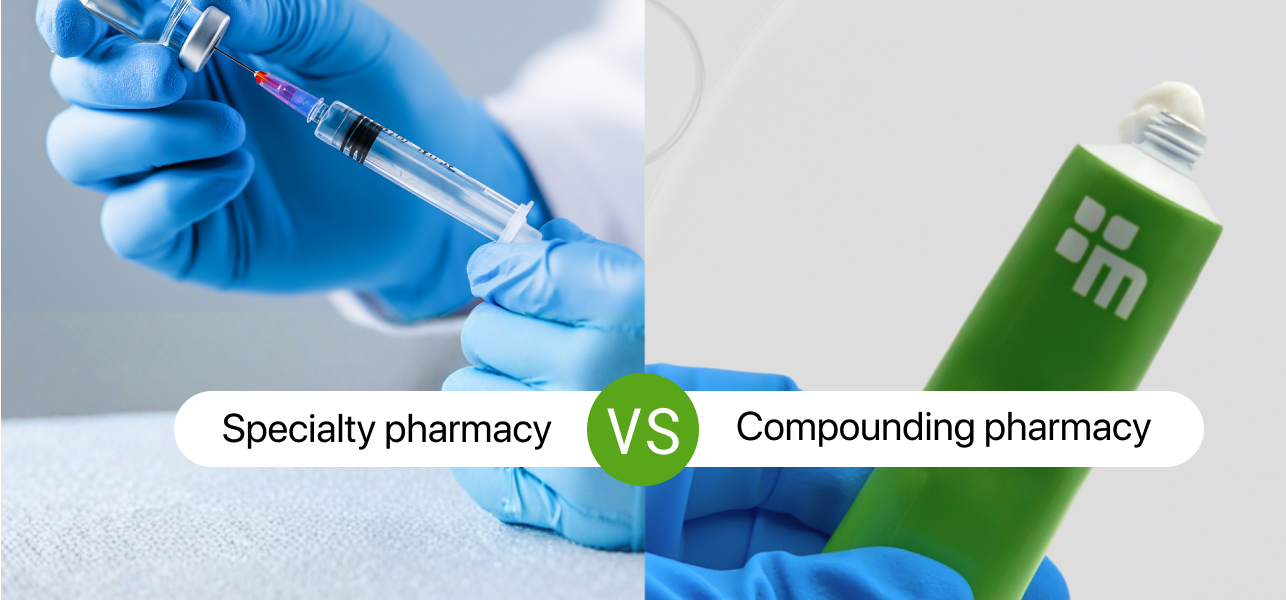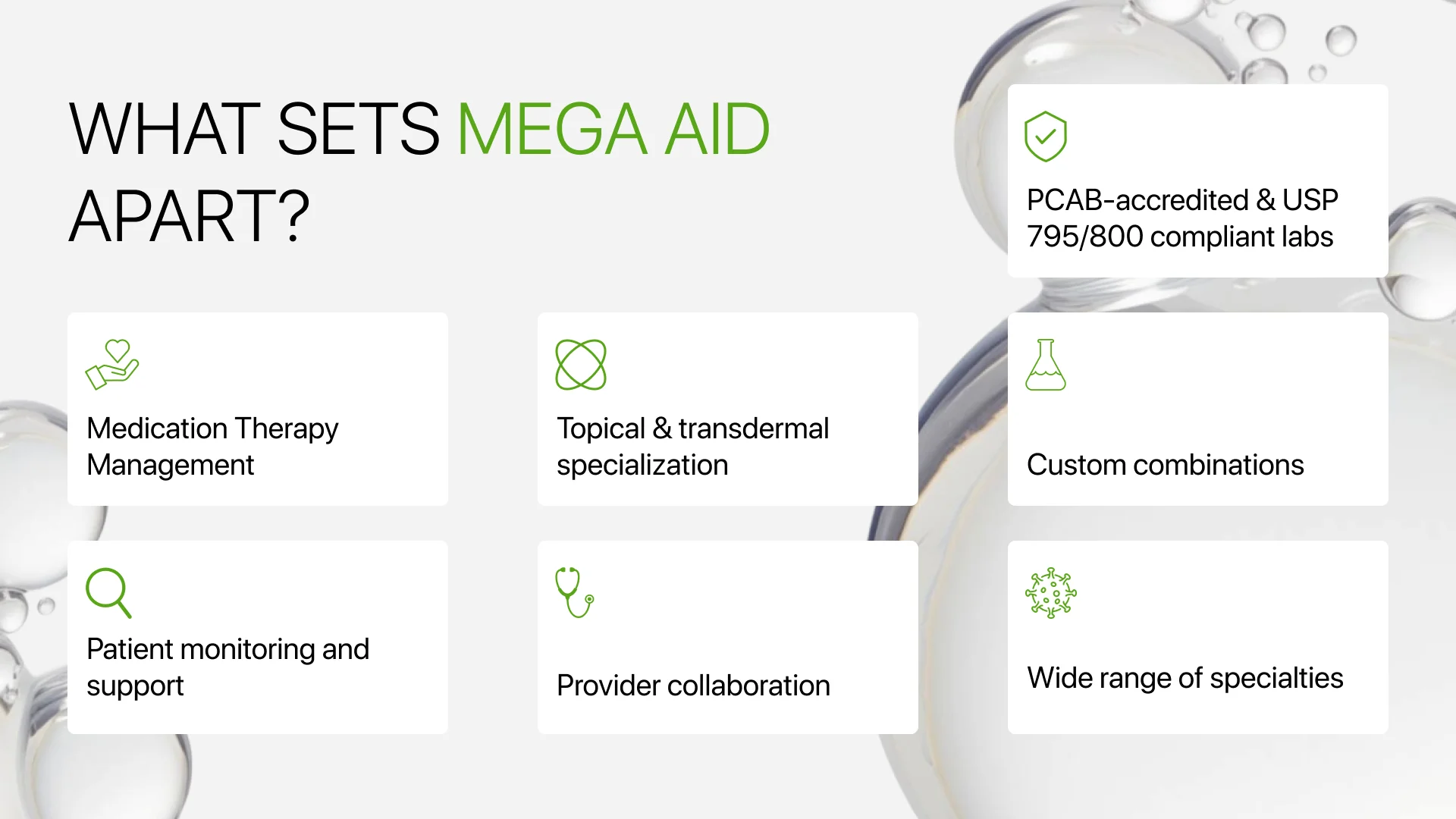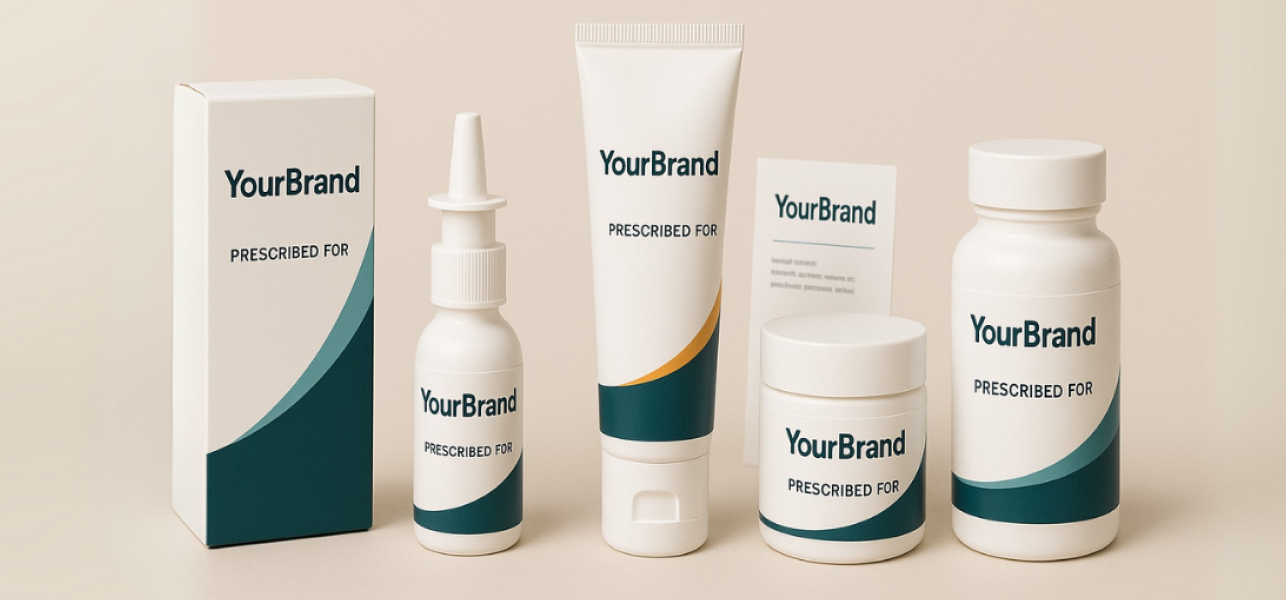Specialty Pharmacy vs. Compounding Pharmacy: Understanding the Differences and Choosing the Best Care for Your Needs

When managing chronic, complex, or unique health conditions, the choice of pharmacy can significantly impact treatment outcomes, medication safety, and patient experience. Two highly specialized pharmacy models—specialty pharmacies and compounding pharmacies—play distinct roles in modern healthcare. Mega Aid Compounding Pharmacy is proud to offer advanced compounding solutions, optimizing personalized care for patients and providers across New York and New Jersey.
- What is a Specialty Pharmacy?
- What is a Compounding Pharmacy?
- Key Differences: Specialty vs. Compounding Pharmacy
- Benefits and Limitations
- How Mega Aid Compounding Pharmacy Excels
- FAQs
- Patient Resources & Multimedia
- References & Further Reading
What is a Specialty Pharmacy?
Specialty pharmacies focus on the distribution and management of high-cost, high-complexity medications, primarily for chronic and life-threatening conditions such as cancer, autoimmune disorders, cystic fibrosis, multiple sclerosis, and rare genetic diseases. Key features include:
- Medication management for complex therapies
- Patient counseling on side effects, administration, and adherence
- Coordination with healthcare providers for optimal outcomes
- Financial assistance for high-cost drugs
- Data analytics to track trends and patient results
Specialty pharmacies dispense pre-manufactured medications—often biologics or injectables—requiring strict protocols for storage, handling, and monitoring.
What is a Compounding Pharmacy?
Compounding pharmacies, such as Mega Aid, customize medications for individual patients based on prescriber specifications. This is essential when:
Compounding pharmacies mix, alter, or combine FDA-approved ingredients to create personalized therapies, including topical creams, gels, liquids, and more.
Key Differences: Specialty vs. Compounding Pharmacy
| Feature | Specialty Pharmacy | Compounding Pharmacy |
|---|---|---|
| Medication Type | Pre-manufactured, high-cost | Custom-made, patient-specific |
| Conditions Treated | Chronic, rare, complex | Individualized needs (pain, skin, hormone, etc.) |
| Formulation | Standardized | Custom dosage/form/ingredients |
| FDA Approval | Yes (drug products) | No (final compounded product); Yes (ingredients) |
| Patient Monitoring | Adherence & side effect tracking | Therapy outcome & formulation adjustment |
| Provider Collaboration | Yes | Yes (often more personalized) |
| Regulatory Oversight | FDA, state boards | State boards, USP, PCAB, ACHC |
Benefits and Limitations
Specialty Pharmacy
Benefits:
- Access to breakthrough drugs
- Comprehensive support for chronic/complex diseases
- Financial assistance programs
Limitations:
- Limited customization
- May not address unique dosage, allergy, or delivery challenges
Compounding Pharmacy
Benefits:
- Personalized medicine tailored to individual needs
- Alternative dosage forms (topical, transdermal, etc.)
- Allergy avoidance
- Enhanced efficacy and minimized side effects (especially topical/transdermal)
Limitations:
- Not all compounded medications are FDA-approved
- Quality and safety depend on pharmacy credentials
- Insurance coverage can vary
How Mega Aid Compounding Pharmacy Excels
Mega Aid Compounding Pharmacy combines best-in-class compounding expertise with a full-circle medication therapy management approach, making it a top choice for patients and providers seeking personalized and effective treatments.
What Sets Mega Aid Apart?
- PCAB-accredited & USP 795/800 compliant labs for safety and quality
- Medication Therapy Management (MTM): Ensures adherence, tracks outcomes, and closes the loop with providers
- Topical & transdermal specialization: Reduced systemic side effects, increased efficacy
- Custom combinations: Multiple active ingredients and precision dosing
- Patient monitoring and support: Ongoing feedback to optimize therapy
- Provider collaboration: Real-time adjustments for optimal results
- Wide range of treatments: Chronic Pain, Arthritis and Inflammatory Pain, Muscle Pain, Neuropathy and Diabetic Neuropathy Pain, Plantar Fibroma Treatment, Dermatology, Bioidentical Hormone Therapy, Hair Loss, Nail and Skin Fungus, Ketamine Therapy for Depression, and more


Testimonials
FAQ: Specialty Pharmacy vs. Compounding Pharmacy
When should I choose a specialty pharmacy?
- If you require high-cost, complex, manufactured drugs for chronic or rare conditions
- If your medication is only available in standard form and meets your needs
When should I choose a compounding pharmacy?
- If you need a medication not commercially available in the right dose/form
- If you have allergies to standard drug ingredients
- If you need a unique formulation (e.g., topical, multi-active therapy)
- If you want to minimize side effects associated with oral/systemic drugs
Are compounded medications safe?
- Mega Aid compounds in PCAB-accredited, USP-compliant labs
- Ingredients are sourced from FDA-registered suppliers
- Each prescription undergoes pharmacist review and quality verification
How does Mega Aid ensure quality?
- Strict standards for staff credentials, equipment, and documentation according to the PCAB and USP guidelines
- Ongoing training and process improvement
- Direct communication with providers for continuous therapy optimization
Ready to Experience the Mega Aid Difference?
Providers: Book a meeting
Patients: Manage your prescription
Fulfillment Partners: Connect with us
Connect With Us



